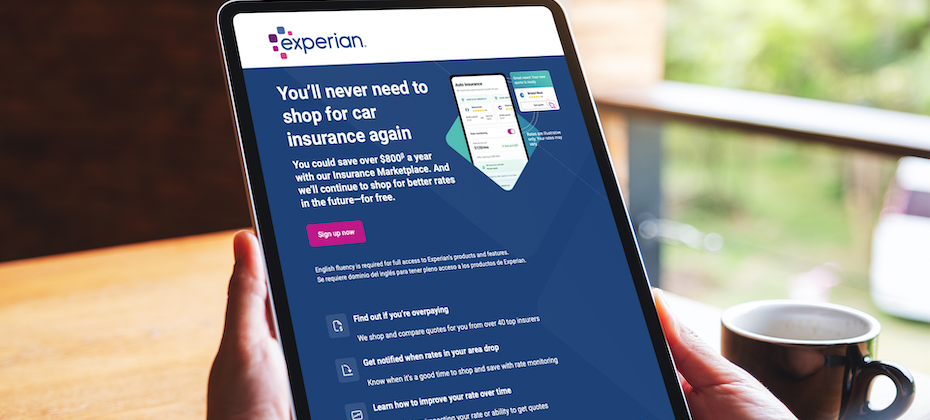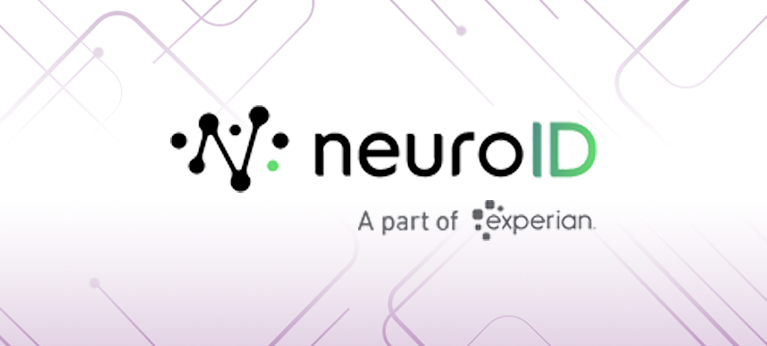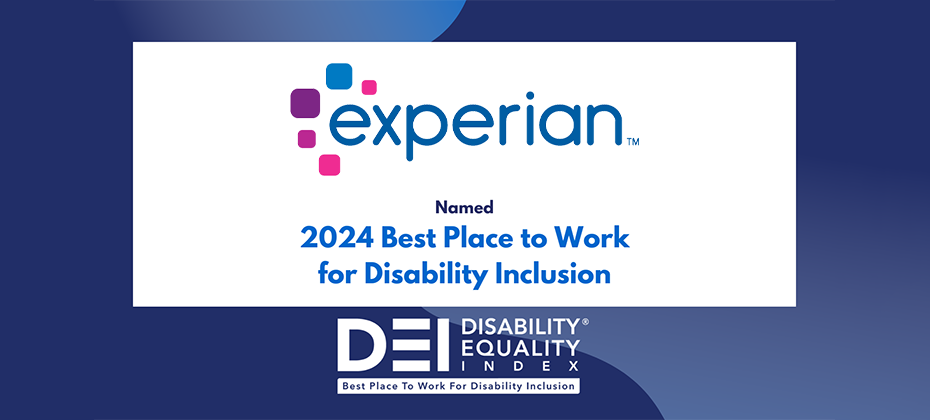NA – North America
News about Experian North America:

People rely on credit cards, personal loans, mortgages and auto loans, among other financial products to buy homes, fund college educations, weather temporary income disruptions and finance billions of daily transactions for goods and services. Credit is the cornerstone of the pursuit of our financial ambitions. That’s why the credit reporting industry is deeply committed to broadening access to fair and affordable financial resources for all consumers, particularly for individuals and households from underserved communities. The commitment is underscored by the continual effort to evolve the credit reporting system and incorporate new data sets to provide lenders a more comprehensive view of consumers’ ability and capacity to repay outstanding debt. Although progress has been made to extend credit to more prospective borrowers across the risk spectrum, if we want to continue to broaden the scope, we need to encourage the consistent reporting of additional predictive data sources to help lenders assess consumers’ creditworthiness. A proven track record but there’s more work to do Over the past century, the credit reporting industry transitioned from an opaque system founded on relationships to one rooted in data. Lenders lean on past payment history on similar loans (i.e., auto loans, mortgages, credit cards, etc.) as a reliable predictor of a borrower’s future loan payment performance—it’s a way for them to mitigate risk and say “yes” to more borrowers. And it works. The comprehensive reporting of past loan performance, coupled with increasingly sophisticated statistical prediction models, as well as the adoption of risk-based pricing, accelerated the extension of credit to more consumers. Yet, according to research from Experian and Oliver Wyman, millions of Americans lack access to mainstream credit because they are credit invisible, unscorable or have a subprime credit score. It’s particularly challenging for younger individuals, newly arrived immigrants and historically underserved communities, such as racial and ethnic minorities. At times it can be a catch-22; in order to get credit, you have to have credit. More predictive data is key At Experian, we’ve long understood that expanding the universe of creditworthy borrowers requires more data. In addition to some of the more conventional tradelines, such as mortgages, auto loans and credit cards, we have to explore expanded data sources that are predictive of a prospective borrower’s credit risk. For instance, more consumers are using buy now, pay later (BNPL) products, and nearly every consumer makes recurring monthly payments for rent, utilities, cell phones and even video streaming services, yet oftentimes, these data points are not consistently reported to the credit reporting agencies nor considered during lending decisions. Collectively, the industry and regulators, need to do more to encourage the consistent reporting and inclusion of expanded data onto consumers’ credit reports. In fact, based on our research, we’ve found that some of the aforementioned expanded data sources can empower lenders to assess the credit risk of a significantly larger pool of consumers. These expanded data sources have been shown to be highly accurate predictors of future loan payment behavior. And, when expanded data is combined with advanced analytics, up to 96% of the population can be scored, including an estimated 65% of credit invisibles.1 Broadening access to fair and affordable credit for more consumers means leaning into combining conventional tradelines with expanded Fair Credit Report Act-regulated data sources. The more information lenders have available to them about prospective borrowers’ past payment performance the more empowered they are to minimize risk and more confidently extend credit. Pushing for more data is the best path forward.

In an era where financial transactions occur at the click of a button, the significance of accurately verifying and authenticating consumers’ identities cannot be overstated. From online purchases to mobile banking, ensuring secure and reliable digital connections and safeguarding consumers’ information are table stakes for any business operating in the digital ecosystem. Unfortunately, some advocacy groups are calling for stricter regulatory guidelines that may impede business’ ability to effectively and efficiently protect a consumer’s financial information and identity. We’re, of course, referring to the push to classify credit header data— identifying information, such as name, current and former addresses, phone number and Social Security number, found at the top of credit reports—as a consumer report under the Fair Credit Reporting Act (FCRA). Subjecting credit header information to the FCRA will unnecessarily limit its permitted use, and effectively make it more difficult—and potentially impossible—for banks and other businesses to use the information to authenticate and verify consumers’ identities. It’s an unintended consequence that will surely compromise the security of our digital identities. Foundational to fraud prevention Credit header data plays a pivotal role in helping businesses detect suspicious activity and stay ahead of increasingly sophisticated fraud schemes. With credit header information, banks and other financial institutions cross-reference loan applications against transactions from hundreds of thousands of contributors to spot anomalies and thwart fraudsters before they inflict harm. In fact, many of the industry’s most advanced fraud prevention tools and signals rely on credit header data to verify the legitimacy of any given transaction. Keep in mind, the transactions we’re referring to are transactions of consequence. For instance, opening a new bank account, applying for a loan or transferring money. This level of activity carries inherent risk, and without proper vigilance, could result in significant financial or reputational harm to consumers and businesses. But it’s not only lenders that leverage credit header data, the use cases for credit header data are broad. Government agencies and businesses in the public sector, law enforcement, and some pharmacies use the information to issue one-time passcodes for identification purposes, find missing persons, or verify consumers’ identities prior to prescriptions being filled. Credit header data is already regulated Some of the concern surrounding credit header data centers on consumer privacy, and rightfully so. Protecting consumers’ privacy should be central to the use of sensitive information; however, credit header data is already regulated by the Gramm-Leach-Bliley Act. In fact, for more than 25 years, the Gramm-Leach-Bliley Act specifically provides that the permissible use of credit header data includes fraud prevention, while also mandating consumer privacy and data protection. Subjecting credit header data to additional FCRA regulation, which does not clearly allow for fraud prevention, could make it impractical or impossible for many businesses to use it for that purpose. Not only is additional regulation unnecessary, but it potentially creates a contradictory web of regulations that increases the compliance burden and confusion for many businesses. This ultimately thwarts the purpose of GLBA by delaying fraud prevention efforts and potentially raising costs for consumers. Credit header data is far more than information included at the top of consumers’ credit reports, it is a linchpin that powers many of the most advanced fraud prevention and identify verification tools in the market. Before any further regulation is considered, we have to acknowledge the role that credit header data plays in keeping consumers’ information safe and how any changes may impact the safety and soundness of our digital economy.

Experian continues to affirm its leadership in financial technology, earning the 7th spot on the 2024 IDC FinTech Rankings. This is the third consecutive year that the company has ranked among the top 10 providers, reinforcing its position as a key player in the FinTech space. The IDC FinTech Rankings assess the top 100 financial technology providers based on revenues generated in 2023 from financial services and FinTech sectors. In addition to this notable achievement, Experian has been awarded the 2024 IDC Real Results Award for Bank Deposit Transformation. This award highlights Experian's innovation in driving measurable and impactful changes within the financial services industry. The recognition is particularly focused on the company’s success in helping banks transform their deposit processes through advanced fraud prevention technologies. Experian's Ascend Fraud Sandbox: A Game-Changer A key factor behind this award is Experian's Ascend Fraud Sandbox, a groundbreaking tool that offers financial institutions a comprehensive platform for fraud detection and prevention. The Ascend Fraud Sandbox empowers organizations to analyze data, identify new fraud patterns, and quickly build, test, and deploy models. This technology enables banks to enhance their fraud detection capabilities, leading to higher approval rates for online deposit accounts and reduced fraud-related losses. The sandbox operates with over 10 billion identity and fraud events, which include applications, login activities, and transactions. It also continuously incorporates tens of millions of new events each day. This expansive dataset allows banks to stay ahead of increasingly sophisticated fraud attempts, especially those driven by artificial intelligence (AI). Experian's success in Bank Deposit Transformation demonstrates the company’s ability to help financial institutions improve their processes while simultaneously enhancing fraud protection. By providing advanced fraud-prevention and identity-protection technologies, Experian enables its customers to optimize their operations, reduce risks, and achieve better financial outcomes. Recognition of Experian's Innovation This dual recognition—ranking 7th in the IDC FinTech Rankings and winning the Real Results Award—further solidifies Experian’s standing as a leader in technology. These accolades underscore its capacity to offer data, technology, and scalable solutions that allow financial institutions to make informed business decisions at the necessary speed to remain competitive in an evolving market. Now in its 21st year, the IDC FinTech Rankings evaluate technology providers based on the revenue they generate from financial institutions, including banks, insurers, and capital markets firms. With both the FinTech Rankings and the Real Results Award in hand, Experian continues to deliver innovative solutions that help financial institutions navigate the complexities of modern finance with confidence.

More than two years ago, Experian expanded its consumer offerings to provide a free auto insurance comparison shopping service. As part of our mission of Financial Power to All™, Experian Consumer Services is continuously working to develop new products, services and features that help consumers reach their financial goals. Providing a convenient way for consumers to potentially find a better auto insurance rate on their current policy fit this bill. We’ve enhanced the service now offering a free Ongoing Rate Monitoring feature so Experian members never have to shop for auto insurance again. After enrolling in a free or paid Experian membership, the Experian Insurance Marketplace delivers at no cost, real-time, tailored rates from more than 40 top insurance providers. The Ongoing Rate Monitoring feature will continuously monitor rates and alert members if there is a better deal available on an ongoing basis. To date, Experian has saved members more than $800[i] on their current insurance policy. The marketplace became available at a critical time when rising inflation and interest rates were significantly impacting consumers’ finances – and it’s still the case today. One of the common expenses that has reportedly risen over the past 1-2 years the most is auto insurance by approximately 20 percent. Thus, it’s no surprise a recent Experian consumer survey shows 3 out of 4 of respondents are worried rates will increase in the next 12 months. We’re proud to be able to address consumer needs and deliver free resources like our marketplace that financially empowers our members. Consumers can also shop at the marketplace for home and renter insurance. To access the marketplace, click here. [i] Results will vary and some may not see savings. Average savings of $828 per year for customers who switched and saved with Experian from Jan. 1, 2022 to Mar. 31, 2024. Savings based on customers’ self-reported prior premium. Experian offers insurance from a network of top-rated insurance companies through its licensed subsidiary, Gabi Personal Insurance Agency, Inc.

Experian North America has once again proven its commitment to creating an exceptional workplace, earning a coveted spot on Fortune’s 2024 “Best Workplaces in Technology” list. This prestigious recognition showcases Experian’s dedication to cultivating a vibrant, innovative and inclusive culture where employees thrive. By prioritizing personal growth, diversity and overall well-being, Experian continues to stand out as a leader in the tech industry, ensuring its workforce remains at the heart of its success. A Testament to Experian’s Workplace Culture The Fortune Best Workplaces in Technology™ list, developed in partnership with Great Place to Work®, was based on surveys from more than 870,000 employees across various industries. Feedback captured factors like trust, respect, fairness and credibility, showcasing Experian’s efforts to build a culture where employees feel empowered and engaged. Innovation and Inclusivity Experian’s inclusion in the Large Workplace category reflects its commitment to fostering a collaborative environment. The company supports diversity through partnerships with AfroTech, Grace Hopper, Lesbians Who Tech and Out In Tech, further demonstrating its dedication to inclusivity. A Year of Notable Achievements In addition to the Fortune recognition, Experian earned a silver medal for innovation from Datos Insights and ranked 7th on the 2024 IDC FinTech Rankings, solidifying its leadership in data and technology. With more than 22,500 employees globally, Experian remains dedicated to innovation, employee development and helping businesses and consumers unlock opportunities.

Fraudsters are opportunistic. They are capitalizing on using new technology to create more sophisticated fraud schemes, underscoring the importance and urgency of prioritizing fraud prevention strategies. In fact, the FTC reported that consumers lost more than $10 billion to fraud in 2023, the first time losses have ever been so high. As a leader in the fraud prevention and identity verification space, we’re dedicated to helping clients stay ahead of evolving fraud trends and challenges. To that end, today we released the findings of our 9th annual Experian Identity and Fraud Report, which provides an in-depth look at the current fraud landscape and the sentiments of both consumers and businesses. Some of the top findings include: Consumers’ top security concerns include: identity theft (84%) and stolen credit card information (80%), a 20% increase compared to 2023. Sixty-three percent of people say it is important for businesses to be able to recognize them online. Eighty-one percent of consumers say they’re more trusting of businesses that can accomplish easy and accurate identification. People want more types of identity recognition techniques used to verify their identities with physical analytics (71%), PINs sent to a mobile device (70%) and behavioral analytics (66%) evoking the highest sense of security for consumers. Companies recognize the importance of focusing on Gen AI, with 70% saying they expect AI fraud to be the second greatest challenge for their business. Despite AI fraud concerns, businesses ranked detecting and preventing Gen AI fraud and deepfakes as the 12th most important investment area behind prevention for legacy fraud types. With these fraud concerns in mind, companies need to review their current fraud tools and strategies, and look for opportunities to add to or change current approaches, to not only mitigate risk but also keep their customers safe while providing a positive experience. Businesses should work with a trusted partner who can help them implement a multilayered approach to identity verification and fraud prevention and help them meet consumer expectations. Experian offers a full suite of automated tools that harness data and analytics to prevent fraud and mitigate losses. We’re dedicated to empowering clients with the insights they need to make informed, data-driven decisions that safeguard their customers and reduce risk. Our recent acquisition of NeuroID, an industry leader in behavioral analytics, is a testament to this. To learn more about Experian’s fraud prevention solutions: please click here. To read Experian’s 2024 Identity and Fraud Report, please click here.

Amid the rise in usage of generative AI tools, companies across industries are looking for fraud detection strategies that enable them to combat sophisticated fraud schemes now and in the future. At Experian, we’re committed to ensuring our clients can make the most informed, data-driven decisions to protect the customers they serve while mitigating risk. To support this, today we’re excited to announce our acquisition of NeuroID – an industry leader in behavioral analytics. NeuroID combines the power of behavioral analytics with advanced device and network intelligence to create the first line of defense against malicious bots, bad actors, and fraud rings. This can help clients identify everything from identity theft to account takeover fraud from the very first interaction. NeuroID’s modern and frictionless capabilities amplify Experian’s fraud risk suite by providing a new layer of insight into digital behavioral signals and analytics observed for both new and returning users throughout the customer lifecycle. Together with NeuroID, we’re excited to build new blended offerings that detect risk but also empower businesses to confidently navigate the online landscape and trust in their transactions. Experian has a long legacy of providing award-winning fraud and identity solutions to protect companies and their customers. Last year alone, our identity verification and fraud prevention solutions helped clients avoid an estimated $15 billion in fraud losses globally. Adding NeuroID to the Experian family is another step in our commitment to continuous innovation in fighting fraud and helping clients and consumers keep pace with the evolving identity landscape. NeuroID’s behavioral analytics solutions are available now through CrossCore® on the Experian Ascend Technology Platform™ as a key fraud-detection capability. With NeuroID seamlessly integrated into Experian, clients can use one service provider to proactively monitor and analyze a user’s real-time digital behavior. To learn more, click here.

Experian is wrapping up several inspiring days at the 2024 Disability:IN Conference. We are a proud Presenting partner, and as part of our support this year, we had the honor of being the key sponsor for the NextGen Innovation Lab Pitch Competition. This initiative brings together young adults to develop innovative products or services that benefit individuals with disabilities. It provides a platform for young minds to harness their creativity and technical skills to solve real-world challenges faced by the disability community. This year, we challenged these NextGen leaders to create a product or service specifically for young adults with disabilities that can help them build their credit or improve their financial literacy. Only 10% of working aged people with disabilities consider themselves to be financially healthy, according to a recent study. Eight enthusiastic and passionate teams shared their ideas and the top two vote-getters’ pitched live, “Shark Tank” style, in front of thousands of conference attendees. The winner: Team 7’s “Experian Expedition,” which enhances the accessibility of the existing Experian app and adds new experiences such as an accessible credit card that also features braille; voice-guided, American Sign Language and closed-captioned exercises; and an incentive program for young adults as they reach various financial health milestones with cash back and coupons. We congratulate Team 7 and all of the teams for their collaboration with Experian and each other. The ideas and services developed through the NextGen iLab have the potential to make a significant impact on the disability community, enhancing accessibility, independence, and quality of life for millions. Sponsoring the NextGen iLab is just one of the many ways Experian is committed to disability inclusion. For the third consecutive year, Experian has achieved a top score in the Disability Equality Index (DEI) 2024. This accolade underscores Experian's ongoing efforts towards inclusivity in our workplace, products and services that are accessible and beneficial to individuals of all abilities, including the Support Hub, Financial Resilience Center, Inclusion Works, and the CMO/CCO Coalition. We’re proud our efforts are recognized by Disability:IN and the American Association of People with Disabilities (AAPD). To learn more about Experian’s commitment to inclusion, check out our Power of YOU Report 2024: Driving social impact and diversity, equity and inclusion in English, Portuguese and Spanish.

Generative AI is not just a technological advancement; it is the driving force behind a revolution in the financial services industry. At the recent VentureBeat Transform conference, financial industry leaders gathered to discuss the transformative potential of Generative AI. Among the panelists was Shri Santhanam, Executive Vice President and General Manager of Software, Platforms, and AI at Experian North America. The session, titled Generative AI: Crafting Smart Solutions for Financial Services, explored how generative AI is revolutionizing the finance sector by crafting intelligent solutions to address unique industry challenges. Santhanam highlighted the significant digital transformation within financial services, driven by AI and machine learning. "Generative AI is having a profound impact on many industries, including financial services," Santhanam stated. He emphasized that AI contributes to better financial inclusion, improved risk assessment, and enhanced customer experiences. Experian's Commitment to AI Innovation Experian has been at the forefront of AI integration, leveraging advanced technologies to drive productivity and enhance customer engagement. A prime example of this commitment is the Ascend Technology Platform, which democratizes access to AI tools for clients and Experian developers. Santhanam shared insights into Experian's strategic approach to AI adoption. "We invested early in production scale and are very careful about which projects to sponsor for go-to-market. These projects must pass a bar that includes strategic alignment, customization, and regulatory compliance," he explained. Real-World Applications and Future Directions Generative AI is poised to produce significant impacts, particularly in underwriting models, pattern recognition, and automation. Santhanam noted that Experian has made considerable strides in AI integration over the past 12 to 18 months, enhancing coding and engineering productivity among the extensive team of over 2,000 engineers. Additionally, AI-powered dialogues have elevated customer engagement, demonstrating the practical benefits of these technologies. One of the standout features of Experian's approach is the balance between innovation and regulation. Santhanam emphasized the importance of breaking down silos and fostering collaboration between risk and technology teams to navigate the complexities of AI adoption in highly regulated environments. Looking Forward Experian's dedication to responsible AI is evident in its establishment of an AI academy to accelerate upskilling and promote grassroots innovation. By encouraging employees to engage with generative AI and share their successes, Experian fosters a culture of continuous learning and experimentation. As AI continues to evolve, Experian remains committed to adapting to regulatory changes while ensuring fairness, transparency, and non-discrimination in their AI applications. We see tremendous opportunities in enhancing customer engagement, expanding financial inclusion, and streamlining processes through AI. In conclusion, Shri Santhanam's participation in the VentureBeat Transform panel underscores Experian's leadership in leveraging Generative AI to drive innovation and deliver tangible benefits to businesses and consumers. The Ascend Technology Platform exemplifies Experian's commitment to harnessing the power of AI responsibly, setting a benchmark for the financial services industry.